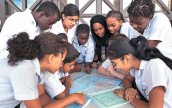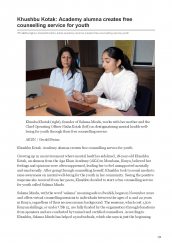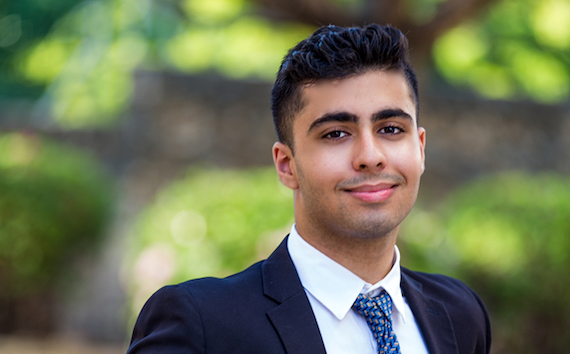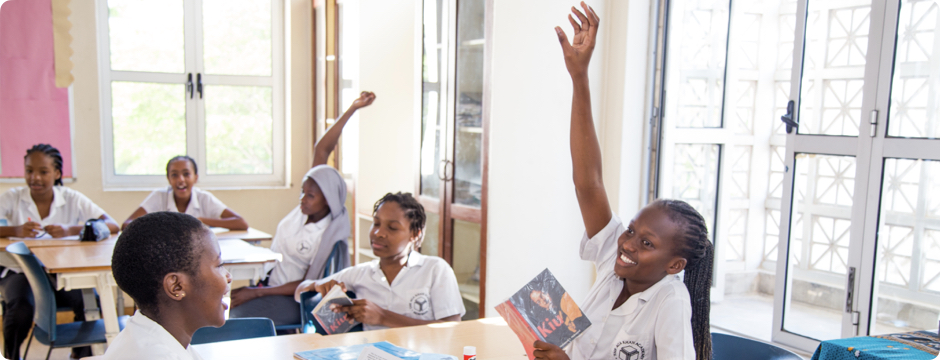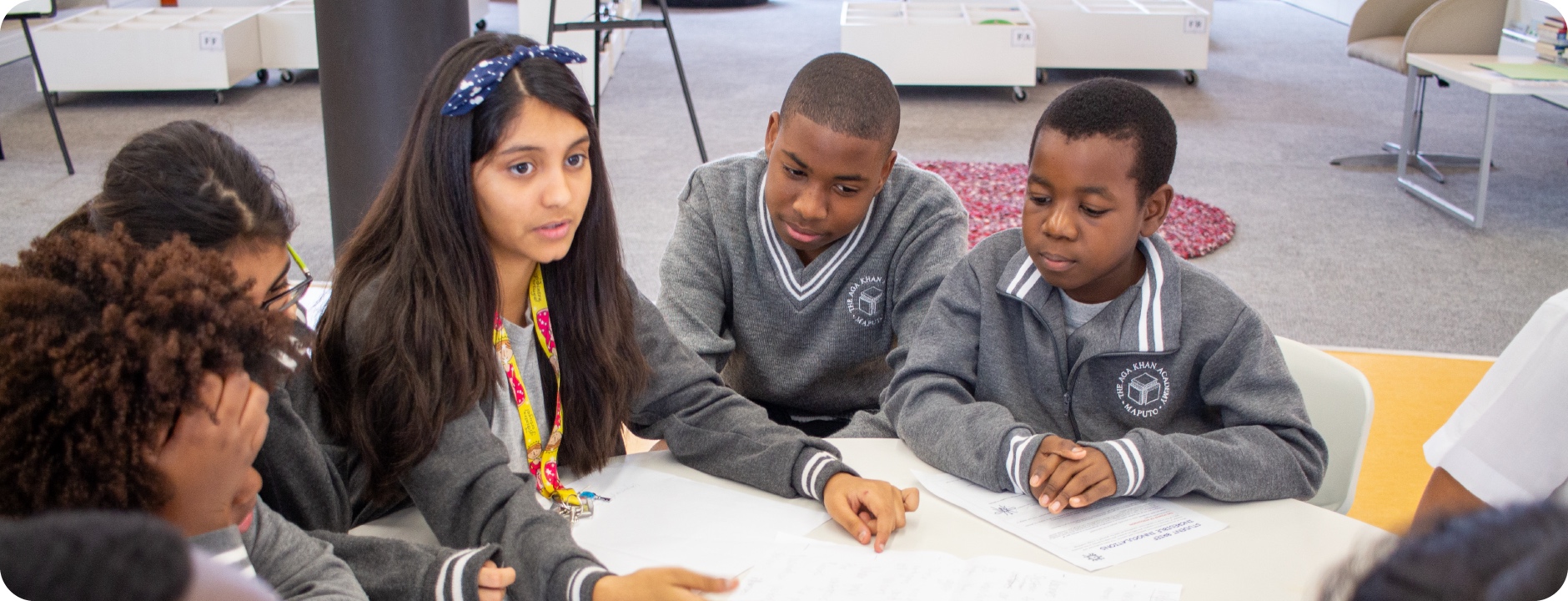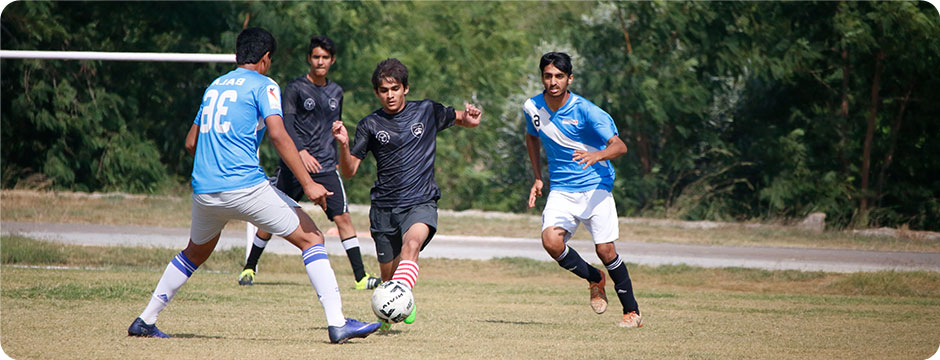Alqaim Lalani: Graduating from the Academy to write a new chapter
For Alqaim Lalani, his recent graduation from the Aga Khan Academy in Mombasa brings him one step closer to furthering his dream of attaining a deeper understanding of how economics and politics affect a society and the daily life of its inhabitants. Alqaim will attend New York’s Columbia University in the Fall as a prestigious Kluge Scholar, where he plans to major in these subjects.
“I have much appreciation for the interdisciplinary study of economics and politics. These two areas of knowledge really dictate the decisions made by leaders, whether that be on the global stage or an institutional platform,” he states.
Even at this young age, Alqaim has engaged in thoughtful and careful consideration of how economics can help leaders plan to avert an uncertain future in their countries.
“In the world we live in, where natural resources and commodities are increasingly scarce, coupled with a rising population growth, economics to me really seems like a subject that is instrumental in planning ahead for the turbulent times to come,” he states with confidence.
Alqaim says he was accepted in the Columbia Undergraduate Scholars Programme for “his intellectual pursuits, extracurricular achievements, and promise for future.” He says being in a residential programme at the Academy helped him follow a routine and helped him navigate his rigorous workload more effectively. He also relished being a “big brother” to the younger students in the dorm.
Extracurricular activities and public service undertakings are an integral part of the International Baccalaureate Programme (IB) curriculum at the Academies. As part of his public service requirement, Alqaim pioneered a cancer initiative called Tumaini La Maisha (Hope For Life). He started this in 2015 for children battling cancers at the Muhimbili National Hospital in Tanzania. Under this initiative, Alqaim engaged young cancer patients and their parents in arts and crafts activities as part of a healing process and also to raise money for their medical treatment. This initiative is ongoing and has expanded to Kenya and Uganda. The parents and patients make bags and other crafts which are sold to the public.
“My personal involvement with the project is distributing the bags once they are made, marketing the products, making orders for the materials that are used in their production and raising awareness about the severity of pediatric cancer in East Africa.”
Another tenet that the Academy places immense importance on is pluralism. What is Alqaim’s takeaway from this?
“In the first year of the diploma programme at the Academy, I travelled to Rwanda with other history students to learn about the Rwandan Genocide. This is perhaps one of the most memorable experiences I had. At the Academy, we are taught about the importance of pluralism and understanding. Yet, when I went to Rwanda and saw the atrocities of the genocide, it reminded me that everyone does not share these values. It also reminded me how significant my Academy education was in allowing me to become an individual that recognizes the wrongful nature of fear-mongering, propaganda and hate speech that are so pervasive today.”
Alqaim holds dear the many lessons learned at the school. He says they have opened his eyes and transformed his old way of thinking.
“Theory of Knowledge taught me to ask the deeper questions, share my opinion fervently while appreciating and respecting views that may be diametrically opposed from my own. Governance and Civil Society provided a nurturing environment for community service projects such as monetary and marketing support.
Projecting an aura of congeniality, Alqaim says, “At the Academy, I have acquired a greater understanding on the importance of ethical leadership and an enduring commitment to whatever project I undertake.”
Related article: AKA Mombasa Student Builds Social Entrepreneurship Initiative
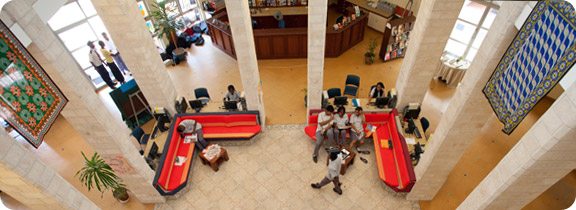
Articles of Interest
The articles listed below have been drawn from the Aga Khan Academies newsletter. They include feature stories and information on aspects of the Aga Khan Academies programme.
Subscribe to the Aga Khan Academies newsletter
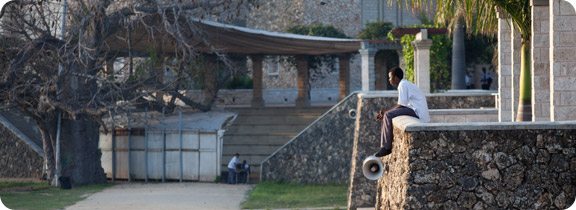
The Aga Khan Development Network
The Aga Khan Development Network (AKDN) is a group of non-denominational agencies that work to improve living conditions and opportunities for the poor across countries of the developing world. Building on an underlying ethic of compassion for the vulnerable in society, the agencies in the Network focus on health, education, culture, rural development, institution building and the promotion of economic development.
Education is a central focus of the AKDN. The Network has been involved in education in the developing world for over a century. Its education programmes cover a wide spectrum of activities, from pre-primary to post-secondary education, teacher training, literacy programmes, school improvement and educational policy reform. The AKDN aims to increase access to quality education for all, particularly those that historically have been underserved or excluded.
The Aga Khan Academies form one arm of the Network's education endeavours. The Academies' focus on developing future leaders is complemented by the work of several other AKDN agencies. Together they provide programming that addresses a range of educational needs across the societies in which they operate. In addition to the Academies, the AKDN's lead organisations in education include the Aga Khan University, the University of Central Asia, the Aga Khan Education Services and the Aga Khan Foundation.
Within the AKDN framework, the Aga Khan Academies exist to both educate exceptional students and disseminate new teaching techniques and learning approaches. Investing heavily in the professional development of teachers is critical to the Academies’ mission of providing students with a rigorous academic and leadership experience.
Learn more about the Aga Khan Development Network, and its work in education and other focus areas, on the AKDN website.
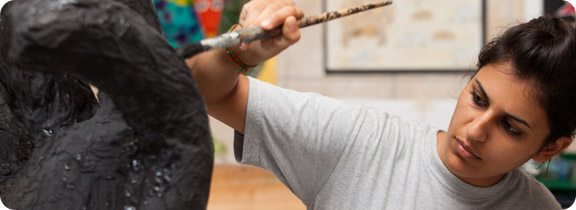
Educational Philosophy
Education is a creative, joyful process that engenders hope and curiosity. Through a diverse and rigorous curriculum, the Aga Khan Academies strive for the development of the whole person. Academies students will be able to contribute to and positively influence their communities. Through academic, athletic and artistic pursuits, they become lifelong learners and leaders.
Education is most relevant and inspiring when it connects young people to the world around them. By encouraging students to think flexibly and to connect their learning to real issues, the Academies build curiosity, compassion and a desire to make a difference.
The programmes of the International Baccalaureate curriculum have therefore been adapted to the specific environment of each Academy, with students developing a deep grounding in their local context alongside learning about relevant international issues and ideas.
An Academies education engenders a pluralistic and ethical approach to life and leadership.
Diverse educational experiences mean that students develop the willingness to embrace difference, and to learn from it. From the very youngest years, everyone works together to develop a sense of civic responsibility and service.
All students are encouraged to use their understanding and skills to take meaningful and sustainable action that makes a real difference to the lives of others.
"...above all, it is my hope that these schools will stimulate creativity, intellectual curiosity and honest inquiry so that their students can adapt and thrive in a world of rapid change; can make informed judgements on life’s daily challenges, and place those judgements in an ethical framework."

Admission Requirements
The Academy uses a multifaceted assessment in identifying students. The assessments enable students to demonstrate their cognitive, literary, mathematical, creative and leadership abilities.
Admission is competitive and based on student merit, regardless of a family’s ability to pay. The Academy endeavours to meet the demonstrated financial need of each admitted student.
Please click here to access the application forms.
Junior School
Years 1–5: Primary Years Programme (PYP)
Students entering year 1 should have completed at least three years of nursery school and must be 6 years of age by 31 August of the year of entry.
All prospective students must demonstrate a potential for high academic achievement and demonstrate competency in literacy and numeracy. Each applicant from year 2-5 must sit a standard assessment in logic, English (reading and writing), mathematics and creativity. Applicants will also have personal interviews with key members of the Junior School staff as part of their application process.
Senior School
Years 6–10: Middle Years Programme (MYP)
All students applying for a place in the Senior School must have attained high scholastic achievement in their former educational institutions. They must also demonstrate a keen interest and participation in community service projects outside the classroom and/or extracurricular activities such as sporting activities, clubs, arts and music.
All applicants must schedule an appointment for a standard assessment test in logic, English, mathematics and problem-solving at the school, in addition to providing past student grade reports and certificates of achievement. Applicants will also have personal interviews with key members of the Senior School staff as part of their application process.
Diploma Programme
Years 11–12: Diploma Programme (DP)
Applicants for the International Baccalaureate (IB) Diploma Programme at the Aga Khan Academy Mombasa, must have demonstrated outstanding academic achievement as well as a proven record of civic mindedness and participation in community projects.
The application process requires prospective students to undergo a standardised assessment test in English, mathemathics and logic as well as an interview with IB Diploma Programme coordinators and key members of the Senior School staff.
New students will not be accepted in the year of the Diploma exam.
Identifying Talent to Produce Home-Grown Leadership
